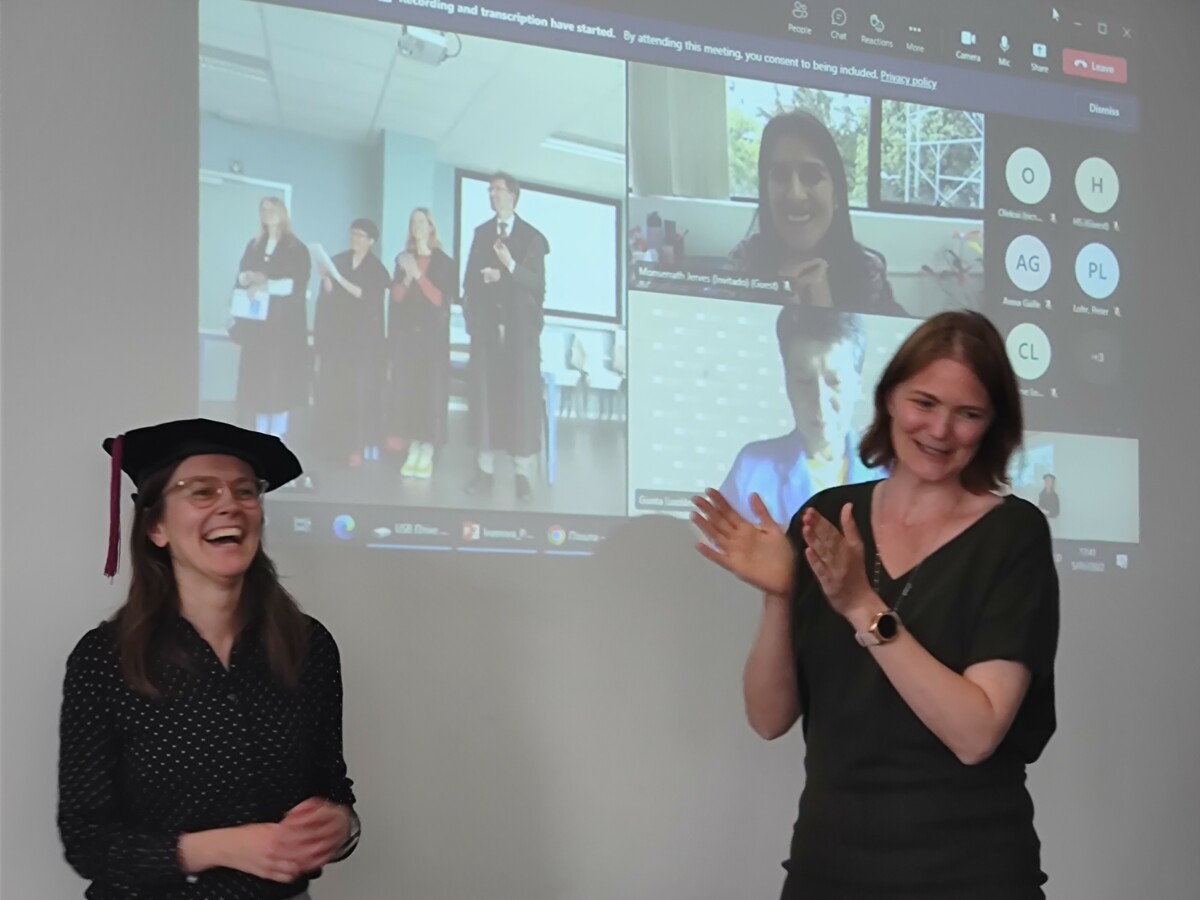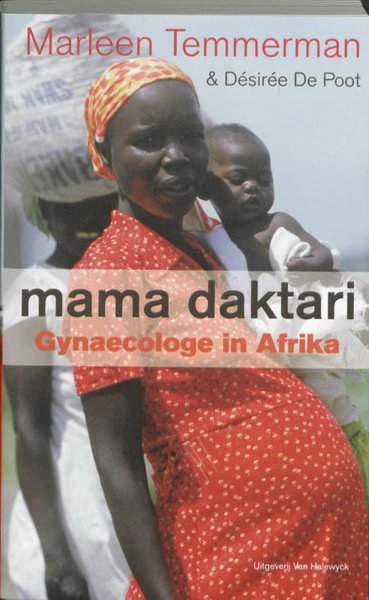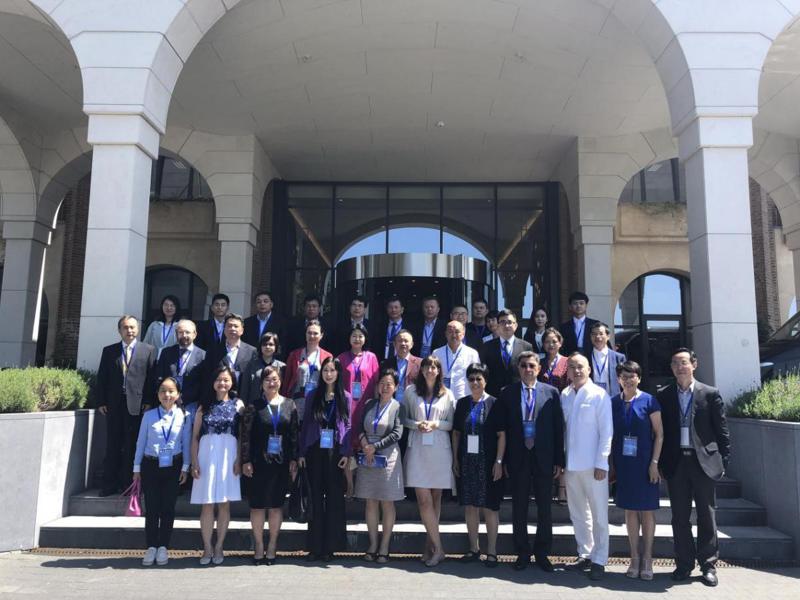PhD defense Ms Olena Ivanova

On Thursday 5 May 2022, Olena Ivanova successfully defended PhD at the Faculty of Medicine and Health Sciences of Ghent University.
The topic of her doctoral research: ‘Evaluation of complex sexual and reproductive health educational interventions targeting young people in low- and middle-income countries.
Her supervisors are: Kristien Michielsen (Ghent University), Sónia Dias (Universidade NOVA de Lisboa).
Olena Ivanova is a medical doctor with a Master’s Degree in Public Health. She works as a researcher and international consultant in global health.
More information on the dissertation can be found in the flyer attached or via this link: https://biblio.ugent.be/publication/8750637
Abstract:
Attention to young people’s health has been increasing globally with a special focus dedicated to their sexual and reproductive health (SRH). Low- and middle-income countries (LMICs) carry the highest burden of HIV, early pregnancies, early marriage and other relevant issues among young people. Improving SRH outcomes and services among young people in LMICs is of critical importance for global and public health. Over the last decades, many SRH interventions, have been designed and implemented. The scope of these interventions is broad, thus, this thesis specifically looks at the SRH interventions with a focus on SRH promotion through education. SRH educational interventions are often complex (i.e., containing multiple activities and targeting variability of outcomes) and contextdependant, especially because of the sensitivity of the young people’s sexuality. Complexity thinking is not new to public health and health promotion sciences; however, it is often nominally mentioned without recognizing its importance for intervention design and evaluation processes. Evaluating complex interventions in complex systems (i.e., schools or health care centers) and showing their effectiveness is methodologically challenging, as well as resource-demanding. However, without suitable and well-planned evaluation, it is very difficult to demonstrate effectiveness and identify interventions that are having a substantial impact on SRH outcomes of young people. The overarching research aim within this PhD dissertation was to contribute to the scientific knowledge on evaluation approaches for complex SRH educational interventions for young people in LMICs. To answer thesis objectives, a diversity of study designs was chosen. Firstly, to synthetise the evidence on the evaluation designs used for complex SRH interventions, a systematic literature review was performed looking at existing evaluation designs applied to sexuality education in LMICs, their benefits and limitations. This review adhered to PRISMA guidelines, searched two data bases and brought findings together using descriptive narrative synthesis. Secondly, different evaluation designs were applied to three SRH interventions for young people in five countries. These interventions focused strongly on SRH promotion and educational component: 1) the ELIMIKA project (Kenya) represented a pilot digital platform providing evidence-based information on SRH and interaction between peers and health care providers for HIV-positive youth; 2) the CERCA project (Ecuador, Bolivia and Nicaragua) delivered educational messages through peer-to-peer education, schools and health care provides to prevent teenage pregnancies; 3) the sexuality education program (CSE Uganda) provided comprehensive lessons in schools for young adolescents. To bring these single evaluations together and learn from them, a meta-evaluation approach was employed, looking at interventions’ effectiveness and methodological soundness, process understanding and involvement of main stakeholders, costs-assessment and utility of results. Findings of this doctoral dissertation have been published in five peer-reviewed articles. In brief, systematic review findings pointed out the dominance of the method-driven evaluation designs for sexuality education interventions with a focus on “gold standard” - randomized controlled trial, with all its limitations in real-world settings; lack of data triangulation and use of mixed method approach; and scarcity of theory-driven evaluations. Moreover, the results of this thesis show the evolution of the PhD candidate’s evaluation thinking - from conservative quantitative approach applied to digital intervention for HIV-positive young people in Kenya to comprehensive combination of effectiveness and process evaluation for school-based sexuality education in Uganda. The ELIMIKA study applied pre-post-test design using questionnaire to assess the effectiveness, however, it suffered from short implementation time and high lost to follow-up. Post-hoc CERCA process evaluation used qualitative approach to shed light on the limited effectiveness of the original evaluation and reflect on different stages of the intervention - from design to additional outcomes. Meanwhile, CSE Uganda combined pre-post-survey in intervention and control groups with process evaluation. Additionally, the meta-evaluation of these three evaluation studies highlighted that all interventions had limited effectiveness; they partially involved main stakeholders in the development and execution of the evaluation; two of them explored the fidelity and quality of the implementation; they all lacked costs assessments and mostly showed good utility in sensitizing and raising awareness among stakeholders around SRH issues. Finally, in the discussion chapter, the impact of intervention’s and context’s complexities on evaluations is explored with providing a description of available alternative evaluation theories and methods. Based on the accumulated experience and literature, an evaluation framework is suggested, which combines context, intervention and evaluation features, and can provide guidance for future evaluation studies of complex SRH programs. There is still a number of research gaps and recommendations that could be addressed in future studies: effective integration of economic evaluations into complex interventions and systems; exploration and testing of alternative evaluation designs, especially in challenging settings, such as humanitarian disasters or during epidemics; and capacity- and resource-adequate programming for measuring long-term SRH outcomes. In conclusion, acknowledging and mapping complexity in the evaluation of SRH interventions for young people in LMICs is challenging, but necessary to better understand how intervention works, why and for whom.
invitation PhD defense Olena Ivanova Flyer PhD Olena Ivanova


